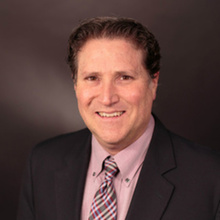By: Emily Delgado
Eric Hunter, professor and DEO of the Department of Communication Sciences and Disorders in the College of Liberal Arts and Sciences, is leading a multidisciplinary and multi-institutional research project focusing on the high presence of voice disorders among teachers.

Hunter’s work, supported by the National Institutes of Health since 2014 and recently updated, is coordinated through the Voice Biomechanics and Acoustics Lab. This research involves collaborators from Brigham Young University, Michigan State University, the University of Illinois, and the University of Utah, as well as various partners across campus including School of Music, Carver College of Medicine, and College of Education.
“School teachers experience the highest incidence of voice disorders among all occupational voice user groups, which significantly impacts not only the teachers themselves but also the financial and logistical operations of schools and the quality of education delivery,” Hunter said. “Our research focuses on developing cost-effective occupational health practices to protect and enhance teachers' vocal health. This includes examining the interplay between vocal risks, workplace demands, accommodations, and policies. Ultimately, the project aims to safeguard teachers’ voices, improve how voice problems are addressed, and create a better classroom learning environment.”
Hunter explained that teachers are particularly vulnerable to voice disorders due to the continuous and demanding nature of their vocal use throughout the school day. Unlike many other professions, teachers rely on their voices as their primary tool for communication, instruction, and classroom management.
When voice problems arise, they can significantly diminish a teacher's ability to project confidence and clarity, reducing their effectiveness in the classroom. This, in turn, can lead to decreased student engagement, difficulty in maintaining attention, and an overall decline in the productivity and quality of the learning environment. Addressing these issues is essential not only for the well-being of educators but also for fostering successful educational outcomes for students.

"These problems not only affect the teachers themselves—often leading to physical discomfort, reduced job satisfaction, and even career interruptions—but they also negatively impact education in the classroom," Hunter said. "When teachers struggle with voice disorders, it can limit their ability to communicate effectively, engage students, and maintain the energy needed for dynamic instruction.”
When teachers are confronted with these problems, it can disrupt the flow of lessons, reduce student understanding, and create challenges in maintaining an optimal learning environment.
“By understanding and mitigating the risk factors for voice problems, this research can help create healthier vocal environments for teachers, leading to improved teaching quality and a more positive learning experience for students,” Hunter said.
In the last six years, and nearly 50 peer reviewed papers later, Hunter and the team have found:
Environmental factors, like classroom noise, room layout and reverberation, significantly affect how teachers use their voices.
Teachers experience more vocal symptoms between the ages of 40-45.
Only half of teachers with access to voice amplifiers actually use them.
Seasonal allergies and acid reflux are correlated with more severe vocal symptoms.
Classroom size and number of students have a significant impact on reported vocal fatigue.
Hunter sees this project and its findings are bringing attention to teachers suffering from voice disorders and enabling healthcare providers to screen and diagnose voice problems in patients.
“By identifying risk factors and understanding how they interact, the project can help teachers in Iowa take preventive measures to protect their vocal health,” Hunter said.
Beyond this research project, Hunter collaborates with a wide range of individuals across campus and around the world. Hunter and School of Music assistant professor David Meyer recently organized Midwest Voice Symposium, a daylong conference that brought together world renown experts in science, voice performance, health and art, with the focus on sharing research on voice disorders and other problems.